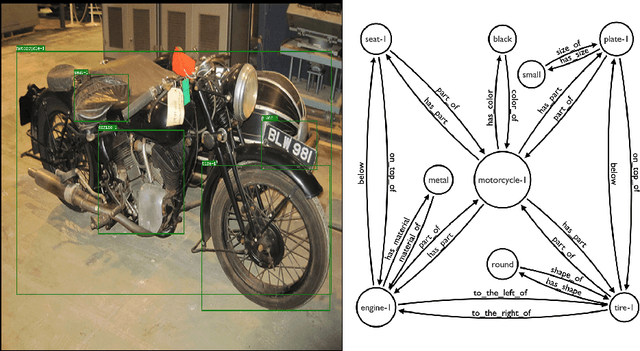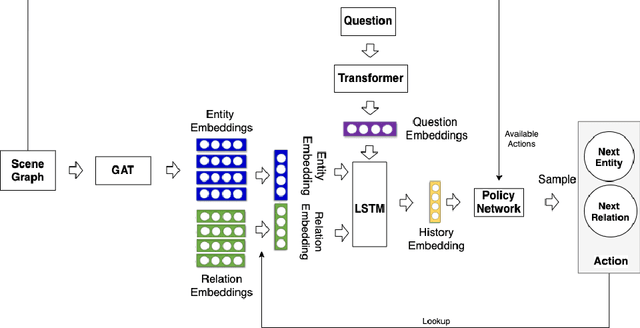Graphhopper: Multi-Hop Scene Graph Reasoning for Visual Question Answering
Paper and Code
Jul 13, 2021



Visual Question Answering (VQA) is concerned with answering free-form questions about an image. Since it requires a deep semantic and linguistic understanding of the question and the ability to associate it with various objects that are present in the image, it is an ambitious task and requires multi-modal reasoning from both computer vision and natural language processing. We propose Graphhopper, a novel method that approaches the task by integrating knowledge graph reasoning, computer vision, and natural language processing techniques. Concretely, our method is based on performing context-driven, sequential reasoning based on the scene entities and their semantic and spatial relationships. As a first step, we derive a scene graph that describes the objects in the image, as well as their attributes and their mutual relationships. Subsequently, a reinforcement learning agent is trained to autonomously navigate in a multi-hop manner over the extracted scene graph to generate reasoning paths, which are the basis for deriving answers. We conduct an experimental study on the challenging dataset GQA, based on both manually curated and automatically generated scene graphs. Our results show that we keep up with a human performance on manually curated scene graphs. Moreover, we find that Graphhopper outperforms another state-of-the-art scene graph reasoning model on both manually curated and automatically generated scene graphs by a significant margin.
 Add to Chrome
Add to Chrome Add to Firefox
Add to Firefox Add to Edge
Add to Edge